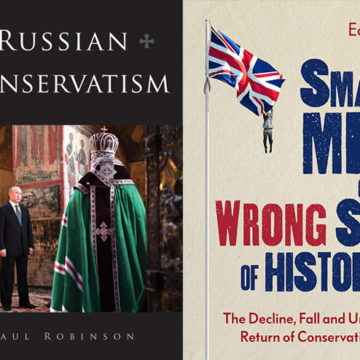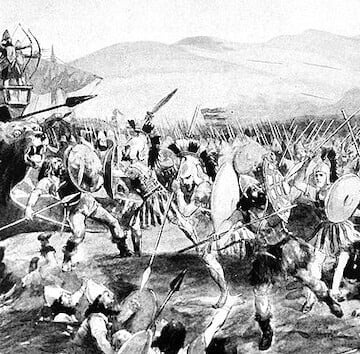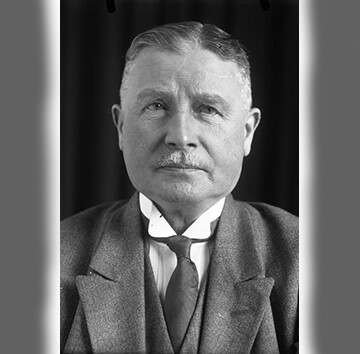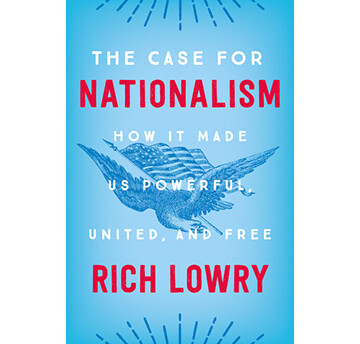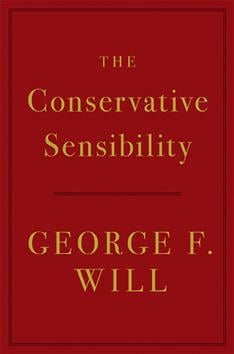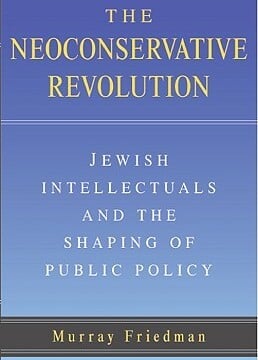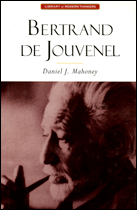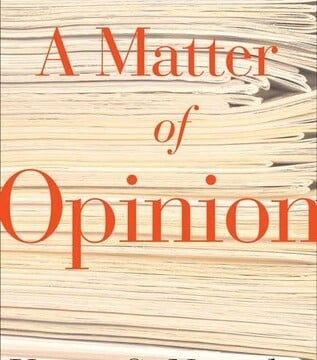Having forced myself to listen to most of the Republican National Convention (RNC) orations in late August, I was struck by what my daughter, who had done such work professionally, characterized as the program’s “underlying marketing strategy.” The GOP’s advisers seem to have pitched their message at the demographics among whom Trump has had the least...
Author: Paul Gottfried (Paul Gottfried)
The Worst Purges Come From the Right
Recently C. Bradley Thompson responded obliquely to my critical comments in Chronicles about his book and subsequent observations on the American Founding. Contrary to Thompson’s asides on Facebook and Twitter dismissing my criticism, I did read some of his tome, The Revolutionary Mind, and even commented on it—but I found its discussion of our state-builders so...
Playing Pretend With the Founding Fathers
In a remarkably disjointed, bombastic defense of “the liberal order,” C. Bradley Thompson writes in American Mind about the dangers posed by “Pajama-Boy Nietzscheans” and the supposedly surging “neo-reactionary movement on the Right.” According to Thompson, “radical Left and Right have now merged” in a virulent form of anti-Americanism—the essence of which consists of not agreeing with...
The Puritan Legacy Birthed the American Creed
Right-wing critics of Christianity often quote from The Hour of Decision, the last work of a once widely read German historian of philosophy, Oswald Spengler. This short, graphically composed book was published in 1933, the year Adolf Hitler took power in Germany. Although it has never been proven, there is a suspicion that the Nazi government disposed...
Books in Brief
Russian Conservatism, by Paul Robinson (Northern Illinois University Press; 300 pp., $39.95). Canadian historian Paul Robinson has written a highly accessible study of Russian conservatism that extends from the early 19th century down to the present time. According to Robinson, defenses of the Russian homeland as a spiritual entity and the accompanying rejection of Western late modernity...
Conservatives Foolishly Play the Diversity Game
Characteristic of Conservatism Inc. for several decades now has been the practice of having politically correct spokespersons expressing its talking points. Fox News is full of black guests who are encouraged to say what the white hosts are terrified of stating lest they be accused of racism or sexism. Candace Owens, a very attractive black...
The Canonization of John Lewis
The extravagant tributes conferred by the conservative establishment on the onetime civil rights leader and longtime Atlanta Democratic congressman John Lewis are as ineffectual as they are utterly tasteless. Lewis’s moments of fame came when he accompanied Martin Luther King, Jr., on his March on Washington in 1963, demonstrating for what became the Voting Rights Act....
In This Number
Like many historical questions, critical reassessments of the dropping of an atomic bomb on Hiroshima and then Nagasaki 75 years ago have moved generally from right to left. In the 1950s and even later, when National Review was unmistakably on the right, challenges to this decision were almost the orthodoxy of the day. The first time I saw...
Antifa: Nazis Without a Plan
Although I have spent much of my scholarly life warning against inappropriate comparisons between Nazis or fascists and the pet peeves of academics and journalists, I myself am now using the F-word (as in fascist) or really the N-word (as in Nazi) with growing regularity. The antifascist left, about which I have just finished writing a...
Reenacting the Civil War Is a Losing Strategy
I had to double-check recently that the Civil War actually did end in 1865. I wondered whether this was still the case after hearing Republican spokesmen and Conservative Inc. celebrities demonizing Robert E. Lee, Jefferson Davis, and other 19th century Southern leaders. American history seems to grow more hateful to our establishment conservatives as the...
Conservative Inc. Pretends to Discipline Its Own
During the last few days, those of us who have questioned Conservatism Inc.’s willingness to stand up to the cultural left seem to have received new allies. David Marcus at The Federalist, Thomas D. Klingenstein at the Claremont Institute, and the commentator Mark Steyn on Tucker Carlson’s program have all been taking shots at the...
Anti-Semitism in Antiquity: The Case of Apion
I have a passing interest in a first-century rhetorician and Hellenized Egyptian named Apion, who is the target of a famous polemic by Flavius Josephus, a member of the Jewish priestly class who became the court historian of the Flavian emperors. Published in Greek but known by its Latin name Contra Apionem, Josephus’s diatribe faults Apion for...
Cultural Radicalism Is the Problem, Not Bolshevism
Socialism is cool again in America, but it’s not your father’s socialism. It is no longer “the rival but the patsy of state capitalism,” as Nathan Pinkoski writes in a penetrating article in Law & Liberty entitled “The Strange Rise of Bourgeois Bolshevism.” The villain of this new socialism “is not the bourgeois but the...
The Danger of Triangulating With the Left
My new anthology, The Vanishing Tradition: Perspectives in Conservatism (from the Cornell and Northern Illinois University presses) does not paint a flattering picture of the present conservative movement. The general impression conveyed by the contributors to this volume is that the movement is driven by the demands of sponsors who do not have a single...
Tucker Versus Woke Mickey
T-Mobile and ABC, owned by Disney Company, will stop advertising on Tucker Carlson’s Fox News show in view of his scandalous comments on the Black Lives Matter movement. Or so I’ve just learned. On Saturday, the news host referred to the protests as “Black Lives Matter riot.” Carlson also asked why he was “required to...
Forgive My Nausea!
Allow me to express my displeasure bordering on nausea over the predictably gutless way in which Conservative Inc. and its most prominent representatives have responded to the riots in American cities. Although our authorized conservatives have indicated that vandalism, mayhem, and killing should not be tolerated on our streets, and although they generally accept President...
Looking for Moral Foundations (in All the Wrong Places)
A debate unfolded in March last year in American Greatness between Chronicles contributor Mark Pulliam and the Claremont Institute’s Edward Erler, a devotee of Harry Jaffa. According to Erler, Robert Bork and others who adhered to strict constitutional originalism were essentially moral nihilists because they would not apply natural law standards to our governing document....
Defining the People
Recent polls show that New York Governor Andrew Cuomo enjoys a popularity rating among New Yorkers that is somewhere in the stratosphere. His ratings remained high, around 80 percent, even after we learned about his “fateful mistake” leading to the deaths of more than 4,500 elderly COVID patients. Fox News polls also indicate that Biden would trounce Trump...
It’s the Public Health, Stupid!
Lately, my progressive acquaintances and the mainstream media seem unable to complete a thought without mentioning the importance of “public health.” These days, if Governor Ralph Northam of Virginia decides to take away people’s guns, he’s only doing so to improve the public health. If he then wishes to extend abortion rights to women who...
Why Are Blacks Democrats?
The fate of Karen Whitsett, a black Democratic representative to the Michigan House of Representatives, who was censured by her fellow black Democrats from Detroit, for developing good relations with President Trump, speaks volumes. It tells us, if any further proof were required, how deeply American blacks hate the Republican Party and any black person...
How Buckley’s Anti-Communism Morphed Into Neoconservatism
Political magazines have long relied on donors to ensure their continued existence. This is true of Chronicles, but it’s also been true of mainstream organs of conservatism such as the National Review. William F. Buckley, Jr., would often pen letters to donors which asserted that the magazine was “dead broke.” In one such letter from...
The Unclubbable
The late Joe Sobran used to refer to liberal high society as “the hive.” What Joe was highlighting were certain qualities that he associated with the fashionable left, e.g., extreme clannishness, the exclusion of those who deviated from authorized political doctrines, and a sense of moral superiority. Without having to deny that such a “hive”...
The Old Left Wasn’t Very Leftist
While researching a book on antifascism, it became clear to me that the contemporary left has strange ideas about what earlier leftists believed. This is especially true in the ascription of a certain timelessness to intersectional politics, which today’s antifascists are all about. In How Fascism Works by Yale Philosophy Professor Jason Stanley, and in...
Two Ways of Changing Our Minds About History
For more than 60 years, I’ve been interested in both the historical past and in how historical interpretations are created. I’ve also written a great deal on both subjects, but particularly on how public and scholarly opinions about past events and personalities change, and why they change. I believe there are two routes through which...
The Myth of Nazi Inevitability
Lately, I’ve been studying a segment of German history about which I knew little as compared with the period before World War I or the great German cultural awakening between 1770 and 1820, sometimes characterized as die Goethezeit. Germany’s failure to stave off a Nazi takeover, which was well on its way to happening when...
Vestigial Reds
Diana West should be a familiar name to anyone who has studied the operation of the American Communist movement. Two of her books, America Betrayed: The Secret Assault on our Nation’s Character (2013) and The Red Thread (2019) examine the influence of Communist party members and fellow travelers on American politics and civic culture, and...
The Politics of the Coronavirus
A friend in Germany just wrote about how political correctness has persisted in his country despite the Corona Pandemic. Although Chancellor Angel Merkel spent years responding to critics of her generous welcoming policy toward Muslim migrants by insisting that borders are fluid, she has now sealed those very borders. Apparently German borders are no longer...
Nationalism for the Lukewarm
It seems that Rich Lowry has taken time off from castigating Donald Trump and calling for the prompt removal of Confederate memorial monuments to compose an entire book making “the case for nationalism.” A media launch was provided by Fox News’s Tucker Carlson, who gave Lowry ample time on his widely watched program to expatiate on...
Culture and Peoples
In a widely noted commentary on the achievements and failures of Sam Francis in the October issue of First Things, author Matthew Rose offers this conclusion: Francis claimed that he sought only to defend Western culture. It is impossible to believe him. He displayed no feeling for literature, art, music, philosophy, or theology. He did...
A Gutless Persuasion
On Nov. 18, the Rupert Murdoch-financed New York Post ran an opinion-piece by its star columnist, Karol Markowicz, on left-wing anti-Semitism. Like the rest of the Post editorial staff, Markowicz is upset that at least part of the Jewish left has turned emphatically against the Israeli Likud government and is demanding the return of the West...
What’s Paleo, and What’s Not
In a recent Townhall commentary, the young author Michael Malarkey marvels over “the resurgence of refined paleoconservatism.” Supposedly Donald Trump has absorbed quintessential paleoconservative positions and is now putting them into practice. This now triumphant creed is “a political stance that posits the importance of strong borders, economic protectionism, and vehement anti-interventionism.” According to Malarkey,...
Remembering the Right
The featured theme of this month’s magazine is focused on a particular task, namely retrieving conservativism and conservative thinkers from the past and explaining their continued relevance to the present. The current conservative movement, as a form of media entertainment and as a partisan PR machine, has undergone sweeping change in just about every respect...
What the Editors Are Reading
French Catholic novelist François Mauriac (1885-1970) enjoyed a long and professionally successful life, receiving the Nobel Prize for Literature in 1952 and the Grand Cross of the Legion of Honour in 1958. He was also intermittently involved in French politics as an outspoken opponent of the German occupation of France during World War II, and...
Judging the Past
Joshua Tait, who is completing a dissertation on the American conservative movement at the University of North Carolina, is a virtue-signaling expert on his object of study. Never does Tait hold back in judging past conservatives by his super-duper progressive standards. For example, he offers this on one particularly revered conservative icon: “[Russell] Kirk was...
The Conservative of Convenience
In a Washington Post review of George F. Will’s The Conservative Sensibility, Catholic political thinker Patrick Deneen offers the following observation: This book is not so much a brief for conservatism as it is a learned and lengthy defense of liberalism: the philosophy of John Locke and America’s Founding Fathers; the economic theories of Friedrich...
Resurrecting the Old Right
For those who may have noticed, I’ve been absent from this venerable magazine for more than 12 years. Upon returning, I feel obliged to give an account of what I’ve learned in the intervening time. Aside from visiting my family and doing research for several monographs, I’ve been pondering the vicissitudes of the American right....
Mending Wall
The Jewish population I encountered during my recent month-long tour of Israel was markedly different from anything I had expected. If there are Israeli counterparts to Abe Foxman and Midge Decter, I didn’t meet them. The vast majority of Jews I did meet were Moroccan and Levantine, while most of the security police in the...
Later, Not Better
The work of a longtime author on social problems, on the deteriorating relations between blacks and Jews, and on Philadelphia civic life who also served as a Reagan appointee to the U.S. Civil Rights Commission, Murray Friedman’s history of the neoconservative ascent to power is neither scholarly nor balanced. Nor is it a book I...
A Loyal Life
A remark I recently overheard on FOX News captured a key difference between Sir Alfred Sherman, whose assessment of the Thatcher years I now have in my hand, and those minicons who float on and off of FOX. Commenting on the visit of Prince Charles to the United States, one of the news interpreters began...
Out of Harm’s Way
In this factually and conceptually rich biography of French political thinker Bertrand de Jouvenel (1903-1987), Daniel J. Mahoney has at least begun the task that he sets for himself in the Preface: performing an “act of intellectual recovery” to “rectify the unwarranted neglect of one of the most thoughtful and most humane political thinkers of...
A Suppressed Embarrassment
A book that has failed to go anywhere internationally, contrary to the author’s expectation, is a recent study by a Chilean Jewish academic who teaches philosophy at the University of Berlin, Victor Farías. His work deals with the youthful thought and career of Salvador Allende, who, between 1970 and 1973, headed the Marxist Government of...
Setting History Straight
Having sensed in the 1990’s that most European and American reporting about the Balkans was suspect, I find that this investigative study by a young German journalist, associated with the publication Junge Welt, fills in gaping holes in the received account of a controversial phase of recent history. Contributing to my uneasiness over the establishment’s...
Shoddy Goods, Shoddy Selves
Victor Navasky’s memoirs, which discuss his longtime relation to the Nation and how he came to publish that magazine, create for the reader two misleading impressions before he gets beyond the dust cover. Contrary to the blurbs of Bill Moyers, Barbara Ehrenreich, E.L. Doctorow, and Kirkus Reviews, this book is neither “elegant” nor “subversive” nor...
The Ugly Muslims
Russell Berman, the Walter A. Haas Professor of Humanities at Stanford, has published a book, Anti-Americanism in Europe, that focuses on European dislike for the United States. Berman explains that “anti-Americanism has emerged as an ideology available to form a postnational European identity.” In place of the nationalist, anti-immigration mood of the 1990s, anti-Americanism permits...
Felix Culpa
This sprawling and densely written 400-page study of Southern political thought, from Old Republicans John Taylor of Caroline and John Randolph of Roanoke down to Whig social theorists (and humorists) John Glover Baldwin and Johnson Jones Hooper—with wedged-in discussions of such other Southern luminaries as Nathaniel Beverley Tucker, St. George Tucker, William Gilmore Simms, and...
An Oakeshott for Our Time
Paul Franco, a professor of government at Bowdoin College, describes his book on English political theorist Michael Oakeshott (1901-1990) as an “introduction.” That modest claim is fully justified in light of the many volumes on politics, philosophy, aesthetics, education, and religion that Franco’s subject left behind in his productive life of 89 years. Franco observes...
Counterrevolutionary Light
Both ISI and Christopher Olaf Blum, who edited this anthology, deserve our thanks for making available in English the six 19th-century French conservative thinkers whose writings are herein presented. Although these men—François René de Chateaubriand, Louis de Bonald, Joseph de Maistre, Fredéric Le Play, Émile Keller, and René de La Tour du Pin—do not display...
Going Nowhere
Agostino Carrino, a Neapolitan legal theorist now associated with the University of Naples Frederick II, has published a series of tracts (available in Italian, German, and French) aimed at the European Union and its claims to legitimacy. Particularly in his last two works, Democrazia e governo del futuro (2000) and L’Europa e il futuro delle...
Cataloguing What’s Been Lost
Chilton Williamson’s study of the sources of American conservative thought presupposes certain assumptions about his subject that may not be universally shared but are defensible nonetheless. Williamson suggests that American conservatism is essentially paleoconservative, and both his choice of current conservative authors and his comments on Joe Scotchie’s Revolt From the Heartland underline this association. ...
The Peculiar Path
A Bavarian legal scholar who has been attached to the U.N. Secretariat and to the E.U. Commission in Brussels, Josef Schüsslburner has disagreements with the German Basic Law, enacted in 1949 as an interim constitution for the West German Federal Republic. The author describes this guiding document and the circumstances that helped shape it as...




